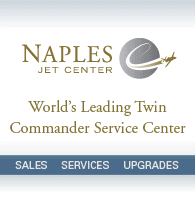Aircraft owners are often in the position where making their aircraft available for use to third parties, whether through a local flight school, a charter operator, or other business contacts, makes good business sense. Rather than remain idle, the aircraft can meet their direct core business demands while also serving to generate additional revenue. Yet, owners may rightfully be concerned that such business use would have a substantial impact on their ability to deduct the aircraft expenses at the time they are incurred.
Why? In part because the Internal Revenue Service has pursued a point of view that the rental of aircraft for use by third parties is a passive activity. When an activity is deemed passive, any losses incurred in the activity may not be deducted against active income. In practice, such treatment may deny taxpayers the opportunity to take business losses for multiple years, as new business activities tend to take several years to become profitable. This concern may be acute for aircraft owners that are otherwise eligible to take large tax depreciation deductions in the first few years of aircraft ownership.
In order to deduct business losses as active, a taxpayer must demonstrate that they are actively and continuously involved in the on-going operations of any short-term rental activity that they engage in. The Regulations enacted pursuant to Internal Revenue Code Section 469 provide seven regulatory tests to determine if an individual has been involved enough for active treatment (see Sec. 1.469-5T(a)).
Several of the tests spell out required time minimums, ranging from 100 to 500 hours per annum, in order to demonstrate the requisite material active involvement in the business activity. Taxpayers are encouraged to keep contemporaneous logs of the time they spend engaged in the activity to support the treatment claimed on the tax return. Generally, work done by an individual in connection with an activity in which they own an interest at the time is treated as participation (see Sec. 1.469-5(f)(1)). However, time spent by a passive investor in an activity is not treated as participation in the activity for purposes of Section 469 (see Sec. 1-469-5T(f)(2)(ii)).
Despite the clear guidelines provided in the Regulations, one theory upon which the Service has relied in order to deny active deductions for the expenses associated with aircraft activities has involved disputing some hours on a taxpayer’s time log as not relevant to material participation, claiming that such time is akin to that of a passive investor. Specifically, the IRS has argued that time spent by an aircraft owner promoting, managing, and maintaining the rental relationships is akin to the actions of an “investor” rather than an active participant in the activity. A recent US Tax Court case, Tolin v. Commissioner, TC Memo 2014-85, decided in early April, rejects such parsing of material participation time when a business owner is actively involved in the day-to-day operations of the business activity.
In Tolin, a practicing attorney with a love of horses decided to also enter the thoroughbred racing business. With the assistance of a thoroughbred consultant, he initially purchased and bred a single horse, and eventually acquired a second. Not unlike an aircraft owner who seeks out short-term rental customers for their aircraft, Mr. Tolin personally solicited potential breeding customers and engaged in networking activities designed to promote the breeding services. Mr. Tolin also paid bills, arranged for insurance, and kept the books for the activity.
In arguing that the economic losses that occurred in the activity were passive, the Internal Revenue Service argued that while some of the time spent by Mr. Tolin should be counted towards material participation, the time that he spent completing administrative tasks, including compiling and reviewing the books and records, should not count, as that time should be treated as “investor hours.”
In rejecting this position, the Court held that because the taxpayer was involved in the day-to-day management and operations of the activity, any “investor” work that he completed also qualifies as participation for purposes of Section 469.
This decision, supported both by the Regulations and by common sense, is a welcome addition to the body of law that supports the position that a taxpayer may materially participate in several profit-seeking endeavors simultaneously, and that day-to-day participants in business operations need not be so concerned that the time they invest in the management of the business activity will be parsed at the whim of the agent conducting an audit.
Making an aircraft available for use to multiple parties remains a legally complex area involving FAA regulations, state law concerns, and remaining tax questions and implication. Not all relevant topics have necessarily been addressed herein—in particular, if the aircraft activity is deemed a “rental” for passive activity purposes, then it will be viewed as passive per se.
It is always best to work with an experienced and knowledgeable advisor to help you navigate those concerns. Share structuring and business decisions with your advisor. It may provide the opportunity to increase the profitability of your aircraft operation.
Suzanne Meiners-Levy, Esq. is Litigation Director for Advocate Consulting Legal Group, PLLC. Advocate Consulting Legal Group, PLLC is a law firm whose practice is limited to serving the needs of aircraft owners and operators relating to issues of income tax, sales tax, federal aviation regulations, and other related organizational and operational issues. IRS Circular 230 Disclosure. New IRS rules impose requirements concerning any written federal tax advice from attorneys. To ensure compliance with those rules, we inform you that any U.S. federal tax advice contained in this communication (including any attachments) is not intended or written to be used, and cannot be used, for the purpose of (i) avoiding penalties under federal tax laws, specifically including the Internal Revenue Code, or (ii) promoting, marketing or recommending to another party any transaction or matter addressed herein.




